Používáte nepodporovaný, zastaralý internetový prohlížeč. Stránky v něm nemusí být správně zobrazeny, mohou být pomalé a nemusí správně fungovat. Zaktualizujte si prohlížeč nebo si nainstalujte nový. Doporučujeme použití některého z následujících prohlížečů: Google Chrome, Edge, Mozilla Firefox
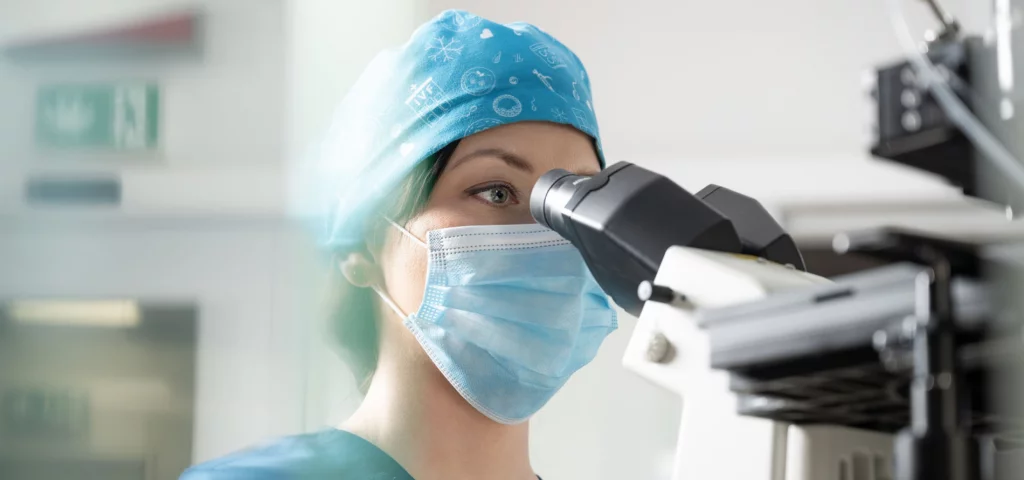
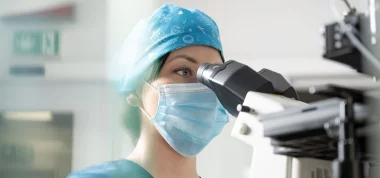
Course of IVF
IVF involves joining a woman’s egg and man’s sperm outside the woman’s body. For couples who fail to conceive using their own germ cells, donated eggs and sperm from suitable anonymous donors will be used for IVF.
Contact usInitial consultation
Based on the completed contact form, our coordinators will make an appointment for an initial consultation, where we will acquaint you with the course of treatment and conduct a basic examination.
Assessment of the couple’s reproductive capacity
In order to determine appropriate treatment, both partners must undergo fertility tests. The causes of infertility can occur in both men and women.

Examination of male fertility
The primary examination for men is a semen analysis (spermiogram), which is the basic means to determine the level of male fertility.

Examination of female fertility
In women, we first conduct a gynaecological examination and test hormone levels to determine the possible causes of infertility and help fulfil your dream of having your own baby.
Selection of the appropriate method to treat infertility
Our IVF consultant will suggest the optimal method of treatment based on the established diagnosis and test results.
IVF with egg donation
If a woman cannot conceive and her partner's sperm are healthy, we use donor eggs fertilised with the partner's sperm.
More informationIVF using donor sperm
For couples who cannot conceive naturally and the woman's eggs are healthy, we can use donor sperm from a suitable anonymous donor to fertilise the eggs.
More informationIVF using donor embryos
Donated eggs and donated sperm are used for in vitro fertilisation.
More informationIVF using own eggs
We recommend IVF if the couple cannot conceive naturally.
More informationRecommendation of laboratory methods to increase the chances of successful fertilisation
Recommendation of laboratory methods to increase the chances of successful fertilisation
By combining methods with proven efficacy (ICSI, PICSI, EmbryoGlue, etc.), we increase our clients' chances of a successful pregnancy.
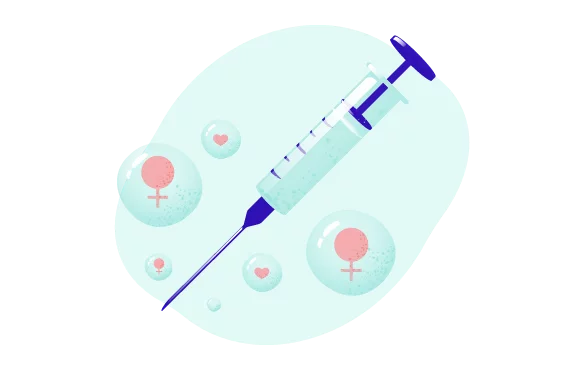
Stimulation
The course of stimulation varies depending on the chosen method of treatment. In IVF using the patient’s own eggs, the goal is to stimulate the growth of follicles from which the eggs are subsequently retrieved. In case of IVF using donated eggs or cryopreserved embryos, medication is used to increase the thickness of the endometrium and its receptivity to the embryo.
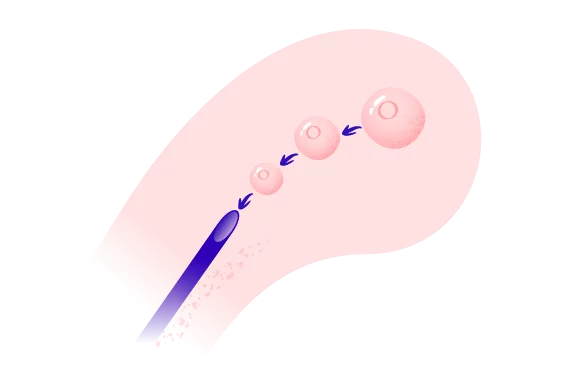
Retrieval of eggs and sperm
Depending on the chosen method of treatment, the patient or donor's eggs are retrieved. Eggs are retrieved under monitored, short anaesthesia, which usually lasts no more than ten minutes. At the same time, the patient’s partner provides his ejaculate in the sampling room at the clinic. In case of donated sperm, we will use frozen sperm from our sperm bank.
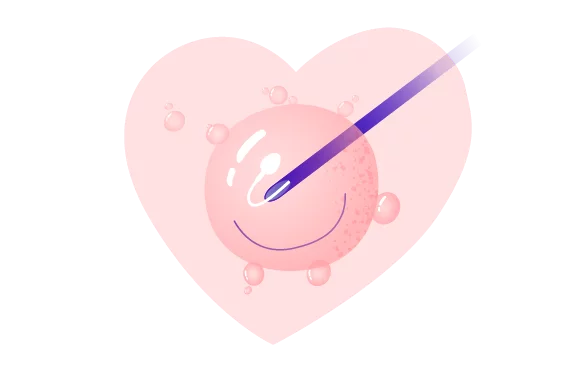
In vitro fertilisation
Mature eggs are fertilised with the partner’s best quality selected sperm, usually by injection directly into the egg (ICSI).
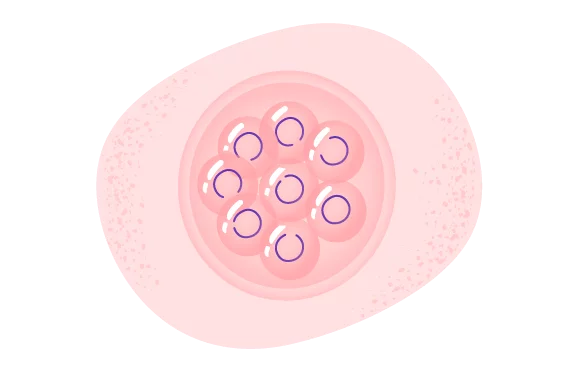
Embryo culture
The purpose of the complex process of assessing embryo quality is to determine the optimal time for embryo transfer to ensure the highest chance of pregnancy.
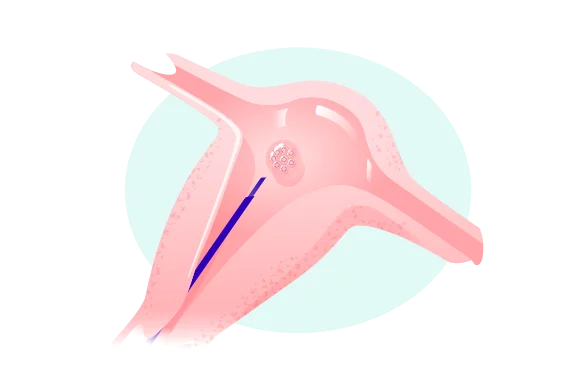
Embryo transfer
The transfer of the embryo into the endometrium is performed without anaesthesia using a thin flexible catheter, the end of which is guided by ultrasound for precise placement of the embryo.
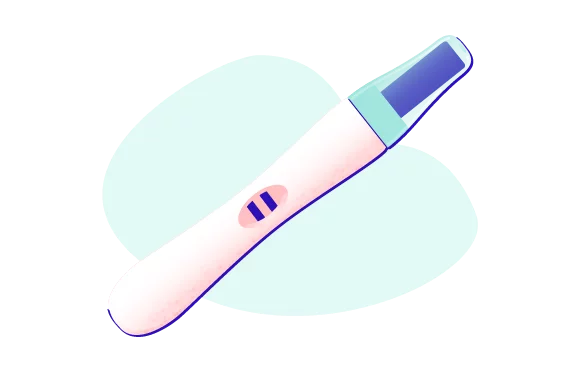
Positive pregnancy test
You should avoid strenuous physical activity and stress after embryo transfer. Successful IVF culminates with a positive pregnancy blood test on the 14th day after transfer.

Frequently asked questions by our patients before starting treatment
-
What is the age limit for IVF?
IVF treatment can be performed up to the age of 49. We recommend not delaying treatment, as age is an important factor in successful IVF.
-
What is the success rate of infertility treatment at the Europe IVF clinic?
We have a proven track record, with a success rate of up to 68%, which ranks us among the world’s leading centres of assisted reproduction. The success of IVF is greatly affected by the client’s age and the laboratory methods used. Our doctors will advise you on which laboratory methods are suitable for you and plan the IVF process specifically to your needs.
-
How long does IVF take?
The duration of the whole IVF process depends on the specific type of treatment chosen. One cycle at the Europe IVF clinic usually takes 2 months.
-
Do I have to be married to my partner if we want to undergo IVF?
It is not necessary to be married for IVF. However, a statutory condition is the written consent of both partners (a woman and a man). This also applies for the treatment of infertility using donated cells.
Take the first step towards treating infertility






